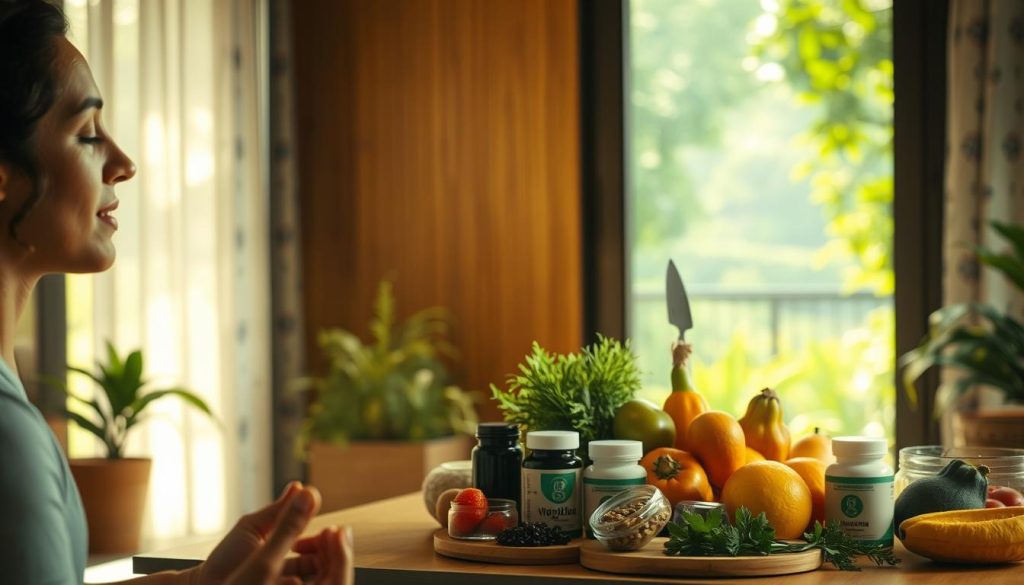In recent years, there has been growing interest in the potential health benefits of negative ions, especially when it comes to supporting the immune system. Many people are turning to air ionizers and other devices that generate negative ions in hopes of enhancing their immunity and overall well-being.
But can exposure to negative ions really give your immune system a boost? In this article, we’ll take a closer look at the science behind negative ions and their impact on immune function. We’ll explore some of the key studies on this topic and examine the potential mechanisms by which negative ions may influence immunity.
We’ll also discuss the practical applications of negative ion technology, including the use of air ionizers in homes and offices, as well as natural sources of negative ions in the environment. Additionally, we’ll address some of the limitations and potential risks associated with relying on negative ions for immune support.
Finally, we’ll provide an overview of some alternative methods for boosting your immune system, including lifestyle factors and evidence-based supplements and herbs. By the end of this article, you’ll have a clearer understanding of whether negative ions can truly enhance your immunity and how to best support your body’s natural defenses.
What are Negative Ions and How are They Generated?
Negative ions are molecules in the air that have gained an extra electron, giving them a negative electrical charge. According to the negative ions definition, these charged particles are created through a process called ionization, which occurs both naturally and through man-made devices.

In nature, negative ions are generated by various sources, such as waterfalls, ocean waves, and lightning storms. The movement of water molecules and the splitting of neutral air molecules during electrical discharges create an abundance of negative ions in the surrounding environment.
Man-made devices, such as negative ion generators or air purifiers, can also produce negative ions. These devices use methods like corona discharge or UV light to ionize air molecules, releasing negative ions into the indoor environment.
The concentration of negative ions in the air can vary depending on the location and environmental factors. Natural settings like forests, mountains, and beaches tend to have higher levels of negative ions compared to urban areas with more pollution and fewer natural ion sources.
While negative ions are often associated with feelings of well-being and freshness, positive ions are linked to decreased air quality and potential health concerns. Positive ions are created by electronic devices, air pollution, and other factors that can lead to an imbalance in the ion ratio in the air we breathe.
Understanding the sources and generation of negative ions is crucial for harnessing their potential benefits, whether through spending time in nature or utilizing man-made devices to enhance the ion balance in our living and working spaces.
The Science Behind Negative Ions and Immune System Function
Recent scientific research has begun to shed light on the potential link between negative ions and enhanced immune response. While more studies are needed to fully understand the relationship, early findings suggest that exposure to negative ions may positively influence various aspects of immune function.
Studies Suggesting Negative Ions Enhance Immune Response
Several studies have investigated the effects of negative ions on immune system activity. One such study, published in the International Journal of Molecular Sciences, found that negative ion exposure increased the activity of natural killer (NK) cells, a type of white blood cell that plays a crucial role in the body’s initial defense against viruses and tumor cells.
Another study, conducted by researchers at the University of California, Irvine, discovered that negative ions could reduce inflammation in the respiratory tract by decreasing the production of pro-inflammatory cytokines. This finding suggests that negative ions may help alleviate symptoms associated with allergies and respiratory infections.
Potential Mechanisms of Action for Negative Ions on Immunity
While the exact mechanisms of action behind negative ions’ impact on immune function are not yet fully understood, researchers have proposed several theories. One hypothesis suggests that negative ions may influence the production and activity of various immune cells, such as T cells and NK cells, by altering cellular signaling pathways.
Another potential mechanism involves the ability of negative ions to neutralize positively charged particles, such as allergens and pollutants, which can trigger an immune response. By reducing the presence of these irritants in the air, negative ions may help to minimize the burden on the immune system.
Can Negative Ions Boost Immune System Function in Everyday Life?
While the scientific research on negative ions and immune function is still emerging, there are several ways to incorporate negative ions into our daily lives. From using negative ion generators in our homes and offices to spending time in nature, we can potentially harness the benefits of these invisible particles to support our overall health and well-being.
Negative Ion Generators for Home and Office Use
Negative ion generators and air purifiers have become increasingly popular in recent years as a means of improving indoor air quality. These devices work by releasing negative ions into the air, which can help to remove pollutants, allergens, and other harmful particles. Some studies suggest that using negative ion generators may also help to reduce symptoms of seasonal affective disorder (SAD) and improve mood and cognitive function.
When choosing a negative ion generator for your home or office, consider factors such as the size of the space, the type of filter used, and the overall effectiveness of the device. Look for products that have been independently tested and certified by reputable organizations such as the Association of Home Appliance Manufacturers (AHAM) or the California Air Resources Board (CARB).
| Room Size | Recommended Negative Ion Generator Capacity |
|---|---|
| Small (up to 200 sq. ft.) | 50 million ions/sec |
| Medium (200-500 sq. ft.) | 100 million ions/sec |
| Large (500+ sq. ft.) | 150 million ions/sec or higher |
Natural Sources of Negative Ions in the Environment
In addition to using negative ion generators, we can also boost our exposure to negative ions by spending time in nature. Some of the best natural sources of negative ions include:
- Waterfalls and beaches
- Forests and mountains
- After a thunderstorm
- Near moving water, such as rivers or streams

Taking regular walks in nature, especially near water or after a rainstorm, can help to increase our exposure to negative ions and potentially support our immune system function. Even simply opening a window to let fresh air into our homes or offices can help to improve indoor air quality and boost negative ion levels.
Risks and Limitations of Using Negative Ions for Immune Support
While negative ions have shown potential benefits for immune function, it’s important to consider the risks and limitations associated with their use. One concern is the potential for negative ion generators to produce ozone, a respiratory irritant that can exacerbate asthma and other lung conditions.
Exposure to high levels of ozone can cause the following symptoms:
- Coughing
- Throat irritation
- Chest pain
- Shortness of breath
- Increased risk of respiratory infections
To minimize the risks of ozone exposure, it’s crucial to choose a negative ion generator that has been independently tested and certified to produce safe levels of ozone.

Another limitation of using negative ions for immune support is the insufficient evidence regarding their long-term effects. While some studies suggest that negative ions can enhance immune response in the short term, more research is needed to determine whether these effects are sustained over time and whether there are any potential adverse consequences of chronic exposure.
It’s also worth noting that individual responses to negative ions may vary. Some people may experience greater benefits than others, and those with pre-existing respiratory conditions should exercise caution when using negative ion generators.
Ultimately, while negative ions show promise as a complementary approach to immune support, they should not be relied upon as a sole or primary means of boosting immunity. A comprehensive approach that includes a balanced diet, regular exercise, stress management, and evidence-based supplements may provide more reliable and sustainable results.
Alternative Methods for Boosting Immunity
While negative ions may have potential benefits for immune function, there are several alternative methods and lifestyle factors that can help support a strong and healthy immune system. By focusing on these evidence-based strategies, you can give your body the tools it needs to fight off infections and maintain optimal health.

Lifestyle Factors that Support Immune Health
Your daily habits and lifestyle choices play a significant role in the strength of your immune system. Some key factors to consider include:
- Diet: Eating a balanced diet rich in fruits, vegetables, whole grains, and lean proteins can provide your body with the nutrients it needs to support immune function. Focus on foods high in vitamin C, vitamin D, and zinc.
- Exercise: Regular moderate exercise has been shown to boost immune function by increasing circulation and reducing inflammation. Aim for at least 30 minutes of physical activity most days of the week.
- Sleep: Getting adequate sleep is crucial for immune health. Aim for 7-9 hours of quality sleep each night to allow your body time to rest and repair.
- Stress management: Chronic stress can weaken the immune system over time. Practice stress-reducing techniques such as meditation, deep breathing, or yoga to help keep stress levels in check.
Evidence-Based Supplements and Herbs for Immune Function
In addition to lifestyle factors, certain supplements and herbs have been shown to support immune health. Some of the most well-researched options include:
| Supplement/Herb | Benefits for Immune Function |
|---|---|
| Vitamin C | Antioxidant that supports immune cell function and may reduce the duration and severity of colds |
| Vitamin D | Regulates immune response and may reduce the risk of respiratory infections |
| Zinc | Essential mineral that supports immune cell development and function |
| Echinacea | Herb that may stimulate the immune system and reduce the duration and severity of colds |
| Elderberry | Antiviral properties that may help fight off influenza and other viral infections |
While these alternative methods can be effective for supporting immune health, it’s important to remember that they should be used in combination with other preventive measures, such as frequent hand washing and avoiding close contact with people who are sick. If you have concerns about your immune function or are considering adding supplements to your routine, be sure to consult with a healthcare professional for personalized advice.
The Bottom Line: Can Negative Ions Really Enhance Immunity?
While some studies suggest that exposure to negative ions may provide immune system benefits, more research is needed to fully understand their potential effects. The mechanisms by which negative ions might influence immunity are not yet clear, and the available evidence is limited. It’s important to weigh the potential benefits against the risks and limitations of using negative ion generators or seeking out natural sources of negative ions for immune support.
For those interested in boosting their immune function, it’s best to take a holistic approach that incorporates a range of evidence-based strategies. Lifestyle factors such as maintaining a balanced diet, getting regular exercise, managing stress, and ensuring adequate sleep are all critical for supporting robust immune health. Certain supplements and herbs, like vitamin C, vitamin D, and echinacea, have also shown promise in enhancing immune response when used appropriately.
Ultimately, while negative ions may offer some benefits for immune function, they should not be relied upon as a sole means of immune support. By adopting a comprehensive approach that addresses multiple aspects of health and well-being, you can give your immune system the best chance of functioning optimally and protecting you against illness. As always, it’s wise to consult with a healthcare professional before making significant changes to your health regimen or using any new devices or supplements for immune support.

